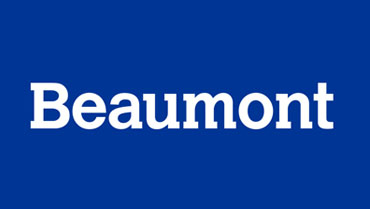Friday, April 22, 2022
International experts, industry luminaries, FDA gather in Washington D.C. to discuss pulmonary embolism
Leaders in the treatment of pulmonary embolism are meeting in Washington, D.C., today to discuss lifesaving treatment approaches to pulmonary embolism with a focus on escalation of care algorithms perfected at Beaumont Health.
Helping to lead the Washington event to address this threat is Dr. Terry Bowers, director of Vascular Medicine at Beaumont Hospital, Royal Oak, and national co-chair of the Pulmonary Embolism Research Collaborative (PERC). About 100 experts are expected to gather for the event to establish standards on how best to treat the potentially deadly condition.
The condition is the third-leading cause of cardiovascular death in the United States, nearly as common as heart attacks and stroke. And Beaumont now has the largest single center database of consecutive PE patients in the world, with about 2900 patients evaluated and treated over the past five years.
“European leaders in the treatment of PE created an algorithm, and we modified and perfected it to create a Beaumont version of how to assess all patients coming in the door with clots in their lungs,” Dr. Bowers said. “Now, we are all working together to expand this life-saving approach around the world.”
Participants in the inaugural meeting will include representatives from the U.S. Food & Drug Administration, European and U.S. medical leaders and industry experts in the treatment of pulmonary embolism. The gathering is being sponsored by the National PERT (Pulmonary Embolism Response Team) Consortium.
Acute pulmonary embolism (PE) occurs when a blood clot blocks blood flow in an artery to the lung. That increases resistance of the outflow of blood from the right side of the heart, which can rapidly and unpredictably lead to potentially deadly heart failure. With blood clots as a potential side-effect of COVID-19, interest in effectively treating the condition has increased.
Discussion is expected to include the multidisciplinary Pulmonary Embolism Response Team (PERT) at Beaumont that advises team physicians. All patients are evaluated and risk stratified, making Beaumont a leader in southeast Michigan in the treatment of PE.
Typical symptoms of PE are chest pain and shortness of breath, which can easily be confused with a heart attack. Typically, PE patients who arrive at emergency centers face a 10 to 15% mortality rate at 30 days, Dr. Bowers said. Those treated with escalated care via the algorithm at Beaumont had a 1.7% mortality rate at 30 days.
“This standard for evaluation, escalation and treatment works,” said Bowers, founder and lead of the PERT team at Royal Oak. “It identifies patients with high-risk PE early, so we’re able to treat them appropriately. You cannot argue with the results we’re getting. So we’re trying to standardize the data collection necessary to share this treatment pattern with other centers.”
Beaumont will also play a prominent role in the PERT Consortium national scientific meeting in September. Beaumont, Royal Oak, PERT coordinator and nurse practitioner Vicki McNally, who is instrumental in activating and coordinating the Royal Oak team when a patient is identified, is co-chair and a speaker at the event.
“A coordinated, methodical response is key to helping patients survive these deadly pulmonary embolisms,” said McNally. “We’re sharing our knowledge in the hopes that this approach will help save lives across the United States.”

